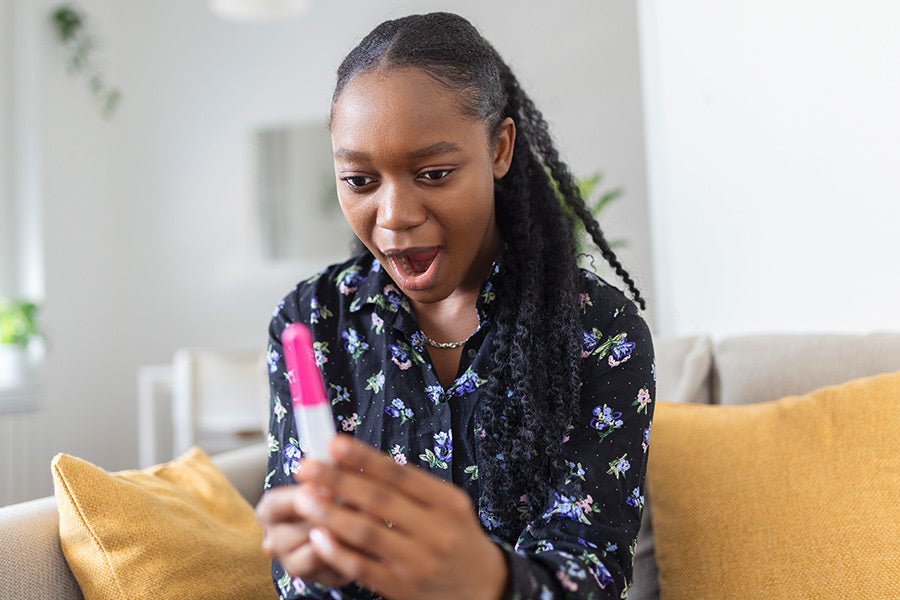13 DPO Symptoms: Everything You Need to Know

You’ve made it to 13 days past ovulation (DPO), which means you’re almost at the end of the two-week wait. This is when most women are on high alert for all the early signs of pregnancy. While most doctors recommend waiting until the first day of your missed period, changes in your body can start as soon as 10 Days Post Ovulation. In this post, we will help you learn everything about 13 DPO symptoms. It’s also the time when your monthly bleed usually arrives. So, let’s find out if you’re experiencing early pregnancy symptoms or if it’s just premenstrual syndrome (PMS).
What Are 13 DPO Symptoms?
At 13 DPO, some of the most common symptoms you’ll experience are almost like those of PMS. It’s hard to spot the difference between the two unless you know more about early signs of pregnancy.
- Cramping: Mild cramping at 13 DPO can be a sign of implantation. It’s the phase when the fertilized egg attaches itself to the uterine lining. These cramps are quite similar to period cramps. However, they are usually less intense and come in for very short durations.
- Spotting: Arguably, the most telltale sign of early pregnancy is implantation spotting at 13 DPO. This spotting is typically lighter than menstrual bleeding, often pinkish or brownish. Unlike menstrual bleeding, there are no blood clots in implantation bleeding. This slight bleeding happens as the embryo burrows into the uterine wall. Remember that not all women experience this, but if you do, it's one of the stronger signs of pregnancy.
- Breast Tenderness: Your breasts may feel sore, swollen, or unusually sensitive during early pregnancy. This happens due to increased levels of progesterone and hCG (human chorionic gonadotropin) after implantation.
- Fatigue: Are you feeling unusually tired? Fatigue at 13 DPO can also be a result of hormonal changes. At this stage, your body is preparing itself to support a pregnancy. That gives rise to progesterone levels in your body, making you feel tired most of the time.
- Nausea: Nausea is more common during the later stages of pregnancy. However, some women may begin to experience nausea in 13 DPO symptoms due to high hCG levels.
- Mood Swings: Mood swings are common even during the regular menstrual cycle. That’s why they are even more frequent during pregnancy due to the constant hormonal changes. You might start feeling irritable, weepy, or unusually sensitive after two weeks.
- Increased Urination: Another early pregnancy sign at 13 DPO is more frequent bathroom trips. They start as early as the body starts producing more blood. It causes the kidneys to work harder and the bladder to fill more often.
What If You Don’t Have Symptoms at 13 DPO?
It’s important to remember that not having any 13 DPO symptoms doesn’t necessarily mean you aren’t pregnant. Every woman’s body reacts differently to the early stages of pregnancy. Some may not notice any symptoms until well after a missed period, while others might experience them as early as 7-10 DPO.
Implantation Spotting at 13 DPO
Implantation spotting at 13 DPO can be quite confusing as it may coincide with the expected date of your period. The key differences you will notice are in the bleeding's color, amount, and duration. Implantation spotting is typically much lighter, doesn’t last as long, and is often pink or brown rather than red. [1]
When to Take a Pregnancy Test
At 13 DPO, taking a home pregnancy test might yield a positive result, but it could also show a negative, even if you are pregnant. This is because hCG levels might need to be higher to be detected. If you receive a negative result but suspect you might be pregnant, you should test again after a day or two.[2]
Conclusion
We know you’ve been trying to make sense of your symptoms and even eagerly waiting for a positive pregnancy test. But it’s important to approach this with patience since you might not get a positive result yet.[3] It’s best to reach out to a healthcare provider if you have concerns or need further guidance on your pregnancy. Remember, while 13 DPO symptoms can offer clues, the only way to confirm pregnancy is through a reliable test.
By paying attention to your body and understanding these signs, you’ll be better prepared to navigate this important stage of your reproductive journey.













